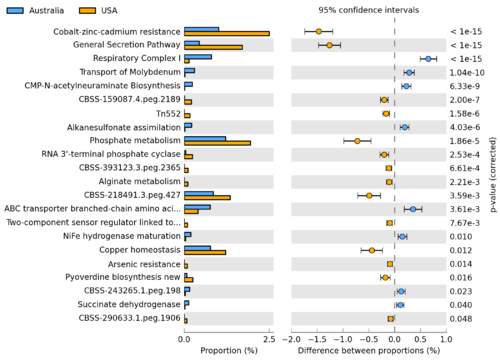Difference between revisions of "STAMP"
| Line 28: | Line 28: | ||
* <in progress> STAMP v2.0.0 (release candidate 3) executable for OS X Snow Leopard (~106MB) | * <in progress> STAMP v2.0.0 (release candidate 3) executable for OS X Snow Leopard (~106MB) | ||
** OS X users can follow the instructions to [[Quick installation instructions for STAMP|install from source]] (it is fairly straightforward) | ** OS X users can follow the instructions to [[Quick installation instructions for STAMP|install from source]] (it is fairly straightforward) | ||
| − | ** You may also use the previous version [[Media:STAMP_2_setup_rc1_SnowLeopard.zip|STAMP v2.0.0 (release candidate 1) for OS X Snow Leopard | + | ** You may also use the previous version [[Media:STAMP_2_setup_rc1_SnowLeopard.zip|STAMP v2.0.0 (release candidate 1)]] for OS X Snow Leopard |
* [[Media:STAMP_2_rc3_source.zip|STAMP v2.0.0 (release candidate 3) source code]] (~28MB) | * [[Media:STAMP_2_rc3_source.zip|STAMP v2.0.0 (release candidate 3) source code]] (~28MB) | ||
* [[Previous versions|Previous versions]] | * [[Previous versions|Previous versions]] | ||
Revision as of 19:07, 28 March 2012

STAMP (Statistical Analysis of Metagenomic Profiles) is a software package for analyzing metagenomic profiles (e.g., a taxonomic profile indicating the number of marker genes assigned to different taxonomic units or a functional profile indicating the number of sequences assigned to different biological subsystems or pathways) that promotes ‘best practices’ in choosing appropriate statistical techniques and reporting results. It encourages the use of effect sizes and confidence intervals in assessing biological importance. A user friendly, graphical interface permits easy exploration of statistical results and generation of publication quality plots for inferring the biological relevance of features in a metagenomic profile. STAMP is open source, extensible via a plugin framework, and available for all major platforms.
Announcements
- January 23, 2012: STAMP v2.0.0 (release candidate 3) released. Fixed generation of 'two groups' PCA plots along with various OS X related bugs.
- August 23, 2011: STAMP v2.0.0 (release candidate 2) released. Fixed bug causing as ungracefully failure when calculating PCA on degenerate datasets.
- August 11, 2011: STAMP v2.0.0 (release candidate 1) released. Provides support for comparing groups of metagenomic samples.
- Previous announcements
Mailing list
- Join our mailing list to keep informed about STAMP developments.
Documentation
- Quick installation instructions (Microsoft Windows, Apple's Mac OS X, Linux, Command-line interface)
- User's Guide (v2.0.0)
- FAQs
- Version history
Downloads
Please uninstall previous versions of STAMP before installing a new release.
- STAMP v2.0.0 (release candidate 3) executable for Microsoft Windows (~31MB)
- <in progress> STAMP v2.0.0 (release candidate 3) executable for OS X Snow Leopard (~106MB)
- OS X users can follow the instructions to install from source (it is fairly straightforward)
- You may also use the previous version STAMP v2.0.0 (release candidate 1) for OS X Snow Leopard
- STAMP v2.0.0 (release candidate 3) source code (~28MB)
- Previous versions
Examples
Citing STAMP
If you use STAMP in your research, please cite:
Parks, D.H. and Beiko, R.G. (2010). Identifying biologically relevant differences between metagenomic communities. Bioinformatics, 26, 715-721. (Abstract)
Contact Information
STAMP is in active development and we are interested in discussing all potential applications of this software. We encourage you to send us suggestions for new features. Suggestions, comments, and bug reports can be sent to Rob Beiko (beiko [at] cs.dal.ca). If reporting a bug, please provide as much information as possible and a simplified version of the data set which causes the bug. This will allow us to quickly resolve the issue.
Funding
The development and deployment of STAMP has been supported by several organizations:
- Genome Atlantic
- The Dalhousie Centre for Comparative Genomics and Evolutionary Bioinformatics, and the Tula Foundation
- Killam Trust
- The Natural Sciences and Engineering Research Council of Canada
- The Dalhousie Faculty of Computer Science